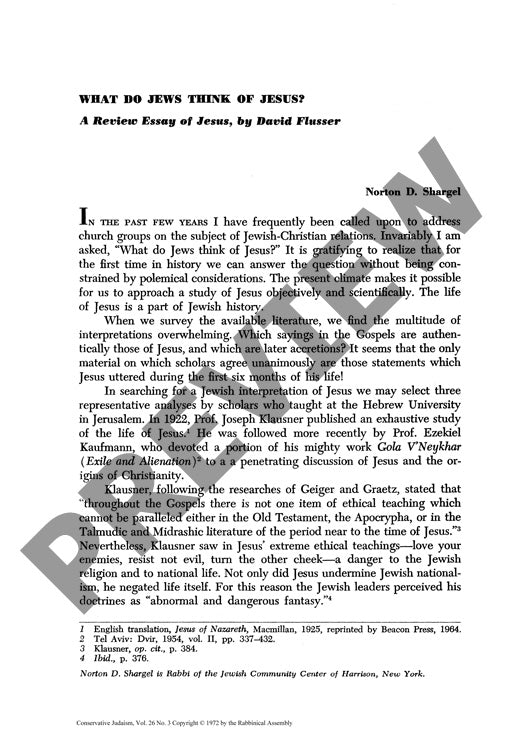What Do Jews Think of Jesus a Review Ess
Couldn't load pickup availability
Jewish scholars have long grappled with interpreting Jesus as a historical figure within Judaism, yielding dramatically different perspectives over the past century. By analyzing three influential Jewish academic works from 1922-1968, particularly David Flusser's groundbreaking research alongside earlier contributions by Joseph Klausner and Ezekiel Kaufmann of Hebrew University, a complex portrait emerges of Jesus as a Galilean Jew who remained faithful to Jewish Law while developing three "revolutionary" concepts: radical love commandment, new morality, and the kingdom of heaven. Through historical and textual examination, these interpretations trace Jesus' ideas to Essene writings and the Testament of the Patriarchs, suggesting he radicalized existing Jewish ethical teachings rather than introducing foreign elements. Flusser's interpretation of Jesus' "new morality" appears anachronistically influenced by modern German theological thought, particularly regarding ethics "beyond good and evil." Instead, Jesus' teachings, while refined, remained fundamentally compatible with Jewish ethics, paralleling other radical Jewish teachers of his era. While Jesus' unique combination of Jewish theological elements was innovative, his teachings might have been absorbed into Jewish tradition had he not claimed messianic status—a claim that, rather than his ethical innovations, ultimately drove Jewish rejection.

More Information
-
Physical Description
-
Publication Information
Published 1972
ISBN
-
Publication Credits
Norton Shargel

